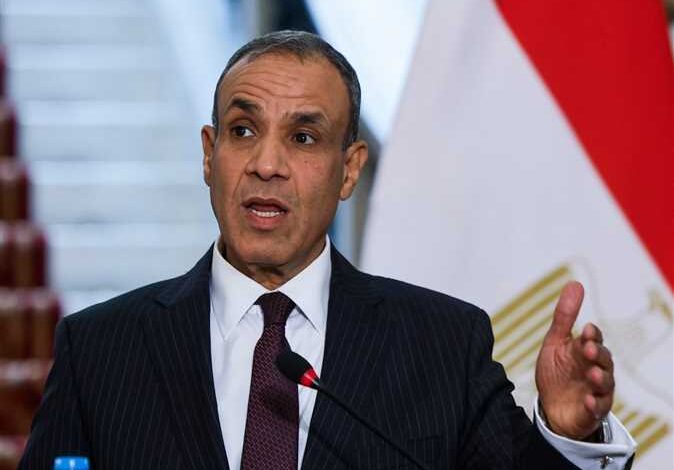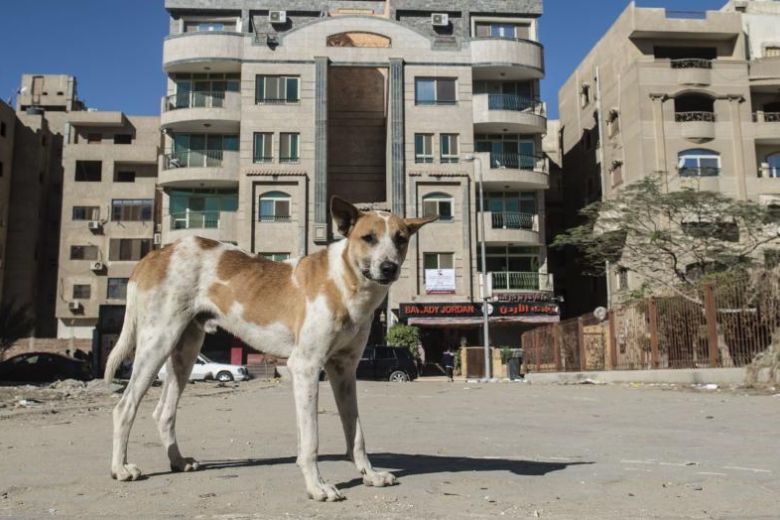
CAIRO, Oct 14 (MENA) – Minister of Foreign Affairs, Emigration and Expatriates Badr Abdelatty chaired on Tuesday the fifth ministerial meeting of the Supreme Permanent Committee for Human Rights.
The meeting was attended by Maya Morsy, Minister of Social Solidarity, Mahmoud Fawzy, Minister of Parliamentary, Legal and Political Communication Affairs, Adnan Fangari, Minister of Justice, Diaa Rashwan, President of the State Information Service, Iman Karim, General Supervisor of the National Council for Persons with Disabilities and Wael Abdel Razek, Secretary-General of the National Council for Motherhood and Childhood along with representatives from the relevant national bodies that are members of the committee.
Abdelatty, who is the committee’s president, expressed his appreciation for the efforts of all members and the technical secretariat in finalizing the fourth executive report on the National Human Rights Strategy, which was submitted to President Abdel Fattah al-Sisi on September 30.
He noted that the report reflects a growing number of actions taken across all pillars of the strategy.
He emphasized that maintaining the annual issuance of the report for four consecutive years demonstrates a strong political will at the highest levels to monitor implementation and highlights the comprehensive efforts undertaken by state institutions to advance human rights and improve the lives of Egyptian citizens.
Abdelatty also noted that the submission of the report comes ahead of the UN Human Rights Council elections, in which Egypt is seeking membership for the 2026–2028 term. These elections are scheduled to take place today, October 14, in New York.
He underscored the importance of this milestone, which reflects Egypt’s progress in the right direction.
He further highlighted President Sisi’s directives to intensify efforts in the coming period to fully implement the National Human Rights Strategy, aimed at ensuring that Egyptian citizens enjoy their full constitutional and legal rights and that a comprehensive human rights framework is strengthened and protected.
The meeting aimed to discuss Egypt’s position regarding the recommendations from the Universal Periodic Review (UPR) session on human rights held earlier this year and to follow up on the implementation of accepted recommendations.
It also addressed Egypt’s candidacy for membership in the United Nations Human Rights Council.
Abdelatty said this cadidacy would reflect the significant progress made in Egypt’s human rights system under the guidance of President Sisi.
He also reviewed the efforts undertaken by the foreign ministry over recent months, including thorough technical preparation, a comprehensive promotional strategy for the candidacy and increased engagement with UN human rights mechanisms.
For her part, Morsy emphasized that the next phase of the National Human Rights Strategy will see further development in national efforts.
She underscored the importance of updating the current strategy to incorporate contemporary issues such as digital technology, non-discrimination and the right to development.
She also stressed the significance of the right to humanitarian relief as a fundamental human right and reviewed Egypt’s efforts in regional crises, particularly its support for the population of Gaza, praising the critical role of the Egyptian Red Crescent.
She affirmed that humanitarian work is an integral part of the state’s human rights obligations.
Also, Fangari highlighted the need for the upcoming strategy to reflect the new laws and legislation recently adopted, illustrating the country’s legislative progress.
He outlined the public services provided by the state, including judicial services, especially efforts to facilitate access to essential services in rural and underprivileged areas, thereby reinforcing the right to development.
He stressed the importance of strengthening women’s rights, especially in the judiciary, as a key pillar of justice and equality.
The meeting concluded with an interactive discussion where participants exchanged views on the efforts undertaken by national entities to advance a comprehensive human rights framework across political, economic, social and cultural dimensions.
It addressed as well legislative developments aimed at strengthening and safeguarding human rights in Egypt. (MENA)




